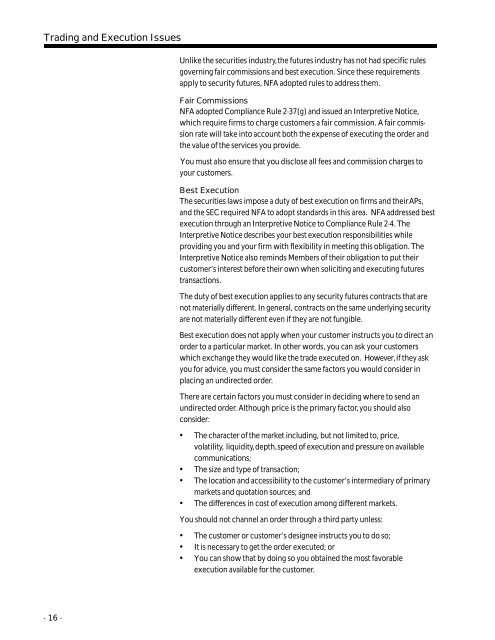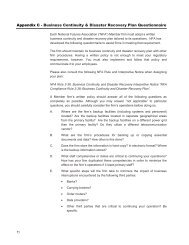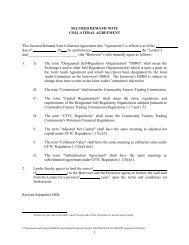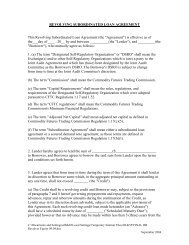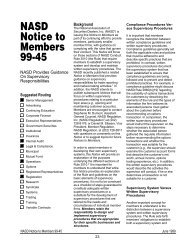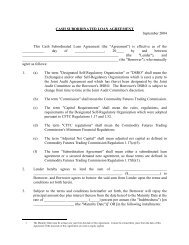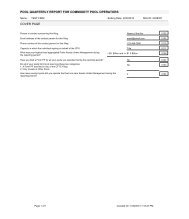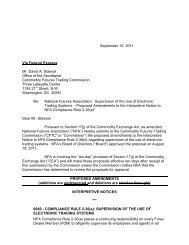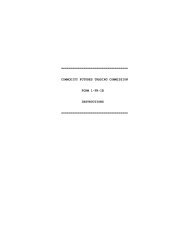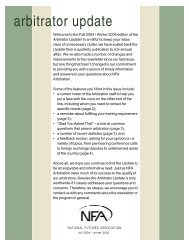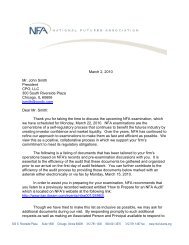Security Futures Products: A Regulatory Guide - National Futures ...
Security Futures Products: A Regulatory Guide - National Futures ...
Security Futures Products: A Regulatory Guide - National Futures ...
Create successful ePaper yourself
Turn your PDF publications into a flip-book with our unique Google optimized e-Paper software.
Trading and Execution Issues<br />
Unlike the securities industry, the futures industry has not had specific rules<br />
governing fair commissions and best execution. Since these requirements<br />
apply to security futures, NFA adopted rules to address them.<br />
Fair Commissions<br />
NFA adopted Compliance Rule 2-37(g) and issued an Interpretive Notice,<br />
which require firms to charge customers a fair commission. A fair commission<br />
rate will take into account both the expense of executing the order and<br />
the value of the services you provide.<br />
You must also ensure that you disclose all fees and commission charges to<br />
your customers.<br />
Best Execution<br />
The securities laws impose a duty of best execution on firms and their APs,<br />
and the SEC required NFA to adopt standards in this area. NFA addressed best<br />
execution through an Interpretive Notice to Compliance Rule 2-4. The<br />
Interpretive Notice describes your best execution responsibilities while<br />
providing you and your firm with flexibility in meeting this obligation. The<br />
Interpretive Notice also reminds Members of their obligation to put their<br />
customer’s interest before their own when soliciting and executing futures<br />
transactions.<br />
The duty of best execution applies to any security futures contracts that are<br />
not materially different. In general, contracts on the same underlying security<br />
are not materially different even if they are not fungible.<br />
Best execution does not apply when your customer instructs you to direct an<br />
order to a particular market. In other words, you can ask your customers<br />
which exchange they would like the trade executed on. However, if they ask<br />
you for advice, you must consider the same factors you would consider in<br />
placing an undirected order.<br />
There are certain factors you must consider in deciding where to send an<br />
undirected order. Although price is the primary factor, you should also<br />
consider:<br />
• The character of the market including, but not limited to, price,<br />
volatility, liquidity, depth, speed of execution and pressure on available<br />
communications;<br />
• The size and type of transaction;<br />
• The location and accessibility to the customer’s intermediary of primary<br />
markets and quotation sources; and<br />
• The differences in cost of execution among different markets.<br />
You should not channel an order through a third party unless:<br />
• The customer or customer’s designee instructs you to do so;<br />
• It is necessary to get the order executed; or<br />
• You can show that by doing so you obtained the most favorable<br />
execution available for the customer.<br />
- 16 -


